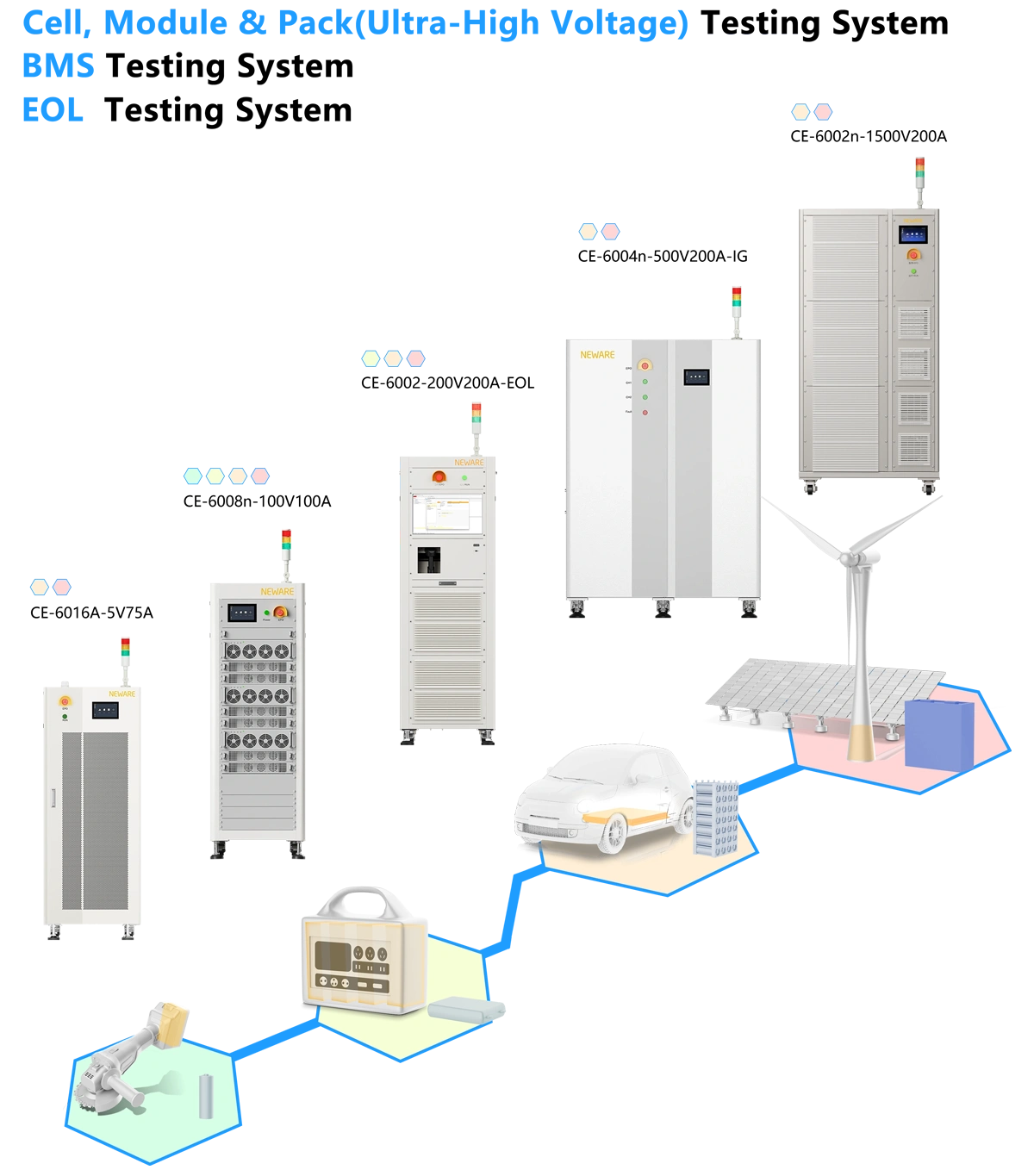
*CT/CE: Battery charging-discharging test system. "E" indicates that this equipment is equipped with energy feedback function.
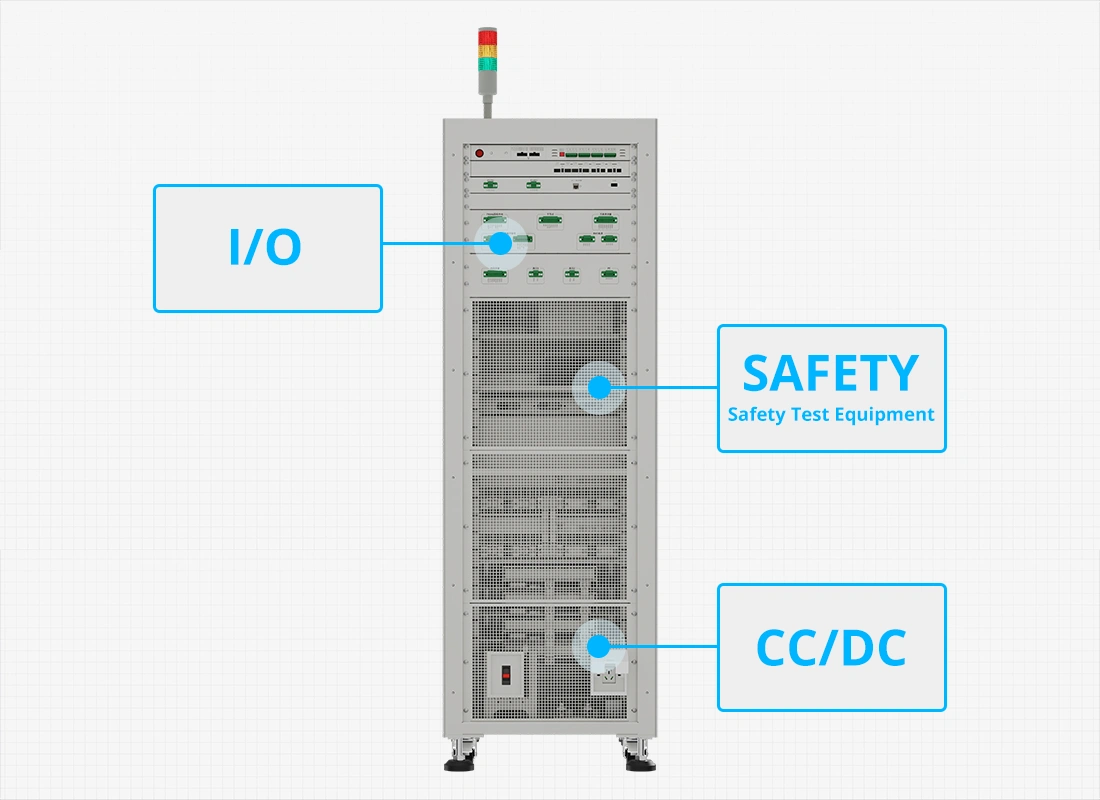

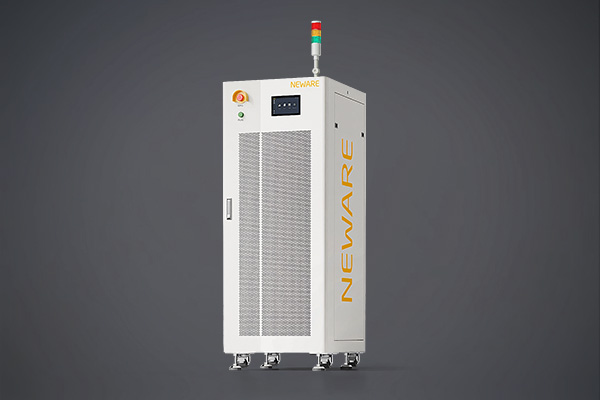
Voltage & Current Accuracy: ±0.05% F.S.
Recording Frequency: 100Hz
Current Conversion Time: ≤6ms
Current Response Time: ≤3ms
Minimum Pulse Width: 100ms
Feedback Efficiency (Max): 75%
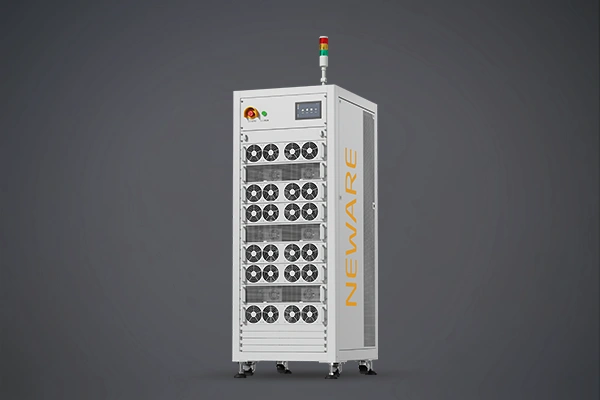
Voltage & Current Accuracy: ±0.02% F.S.
High-Frequency Sampling: 200Hz
Current Conversion Time: ≤2ms
Current Response Time: ≤1ms
Minimum Pulse Width: 10ms
Feedback Efficiency (Max): 75%
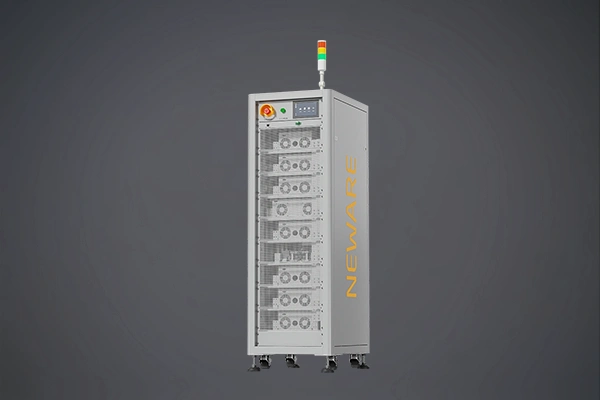
Voltage Accuracy: ±0.02% F.S.
Current Accuracy: ±0.05% F.S.
Recording Frequency: 100Hz
Current Conversion Time: ≤6ms
Current Response Time: ≤3ms
Minimum Pulse Width: 50ms
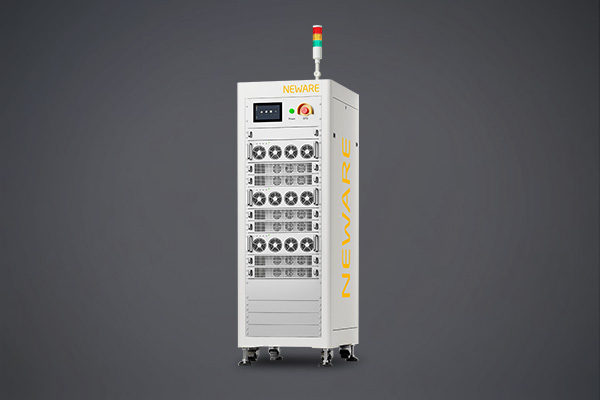
Current Accuracy: ±0.05% F.S.
Voltage Accuracy: ±0.02% F.S.
Recording Frequency: 100Hz
Current Conversion Time: ≤6ms
Current Response Time: ≤3ms
Minimum Pulse Width: 100ms
Feedback Efficiency (Max): 90%
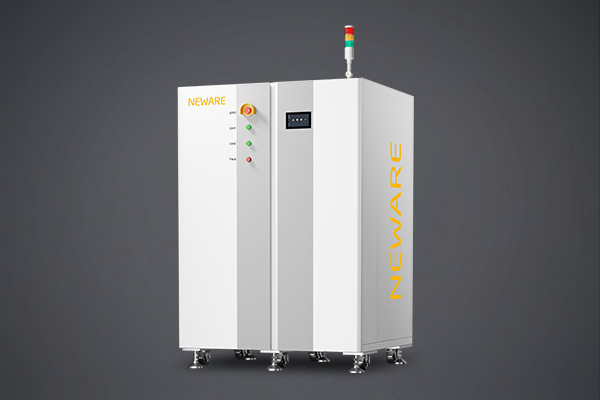
Voltage Accuracy: ±0.02% F.S.
Current Accuracy: ±0.05% F.S.
Recording Frequency: 100Hz
Current Conversion Time: ≤10ms
Current Response Time: ≤5ms
Minimum Pulse Width: 100ms
Feedback Efficiency (Max): 94%
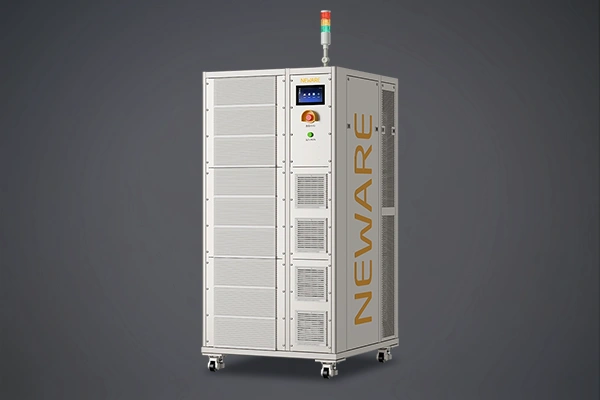
Voltage & Current Accuracy: ±0.02% F.S.
Recording Frequency: 100Hz
Current Conversion Time: ≤20ms
Current Response Time: ≤10ms
Minimum Pulse Width: 50ms
Feedback Efficiency (Max): 96%

Voltage & Current Accuracy: ±0.02% F.S.
Recording Frequency: 100Hz
Current Conversion Time: ≤20ms
Current Response Time: ≤10ms
Minimum Pulse Width: 50ms
Feedback Efficiency (Max): 96%
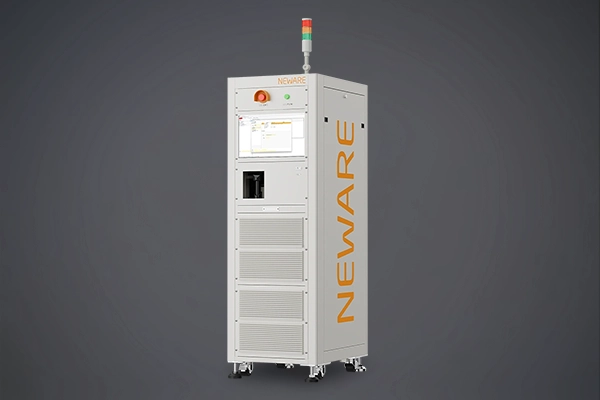
Voltage Accuracy: ±0.02% F.S.
Current Accuracy: ±0.05% F.S.
Recording Frequency: 100Hz
Current Conversion Time: ≤6ms
Current Response Time: ≤3ms
Minimum Pulse Width: 100ms
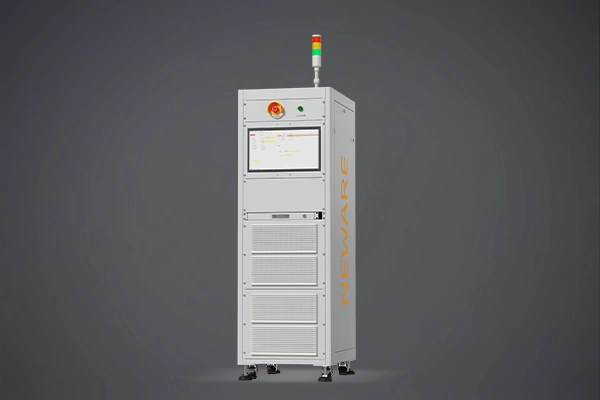
Current Accuracy: ±0.05% F.S.
Voltage Range: 0-1500V
Range of Adjustable: 2Ω-1MΩ
Number of Channels: 24CH
Communication Module: CAN, RS232, IIC, SMBUS, RS485
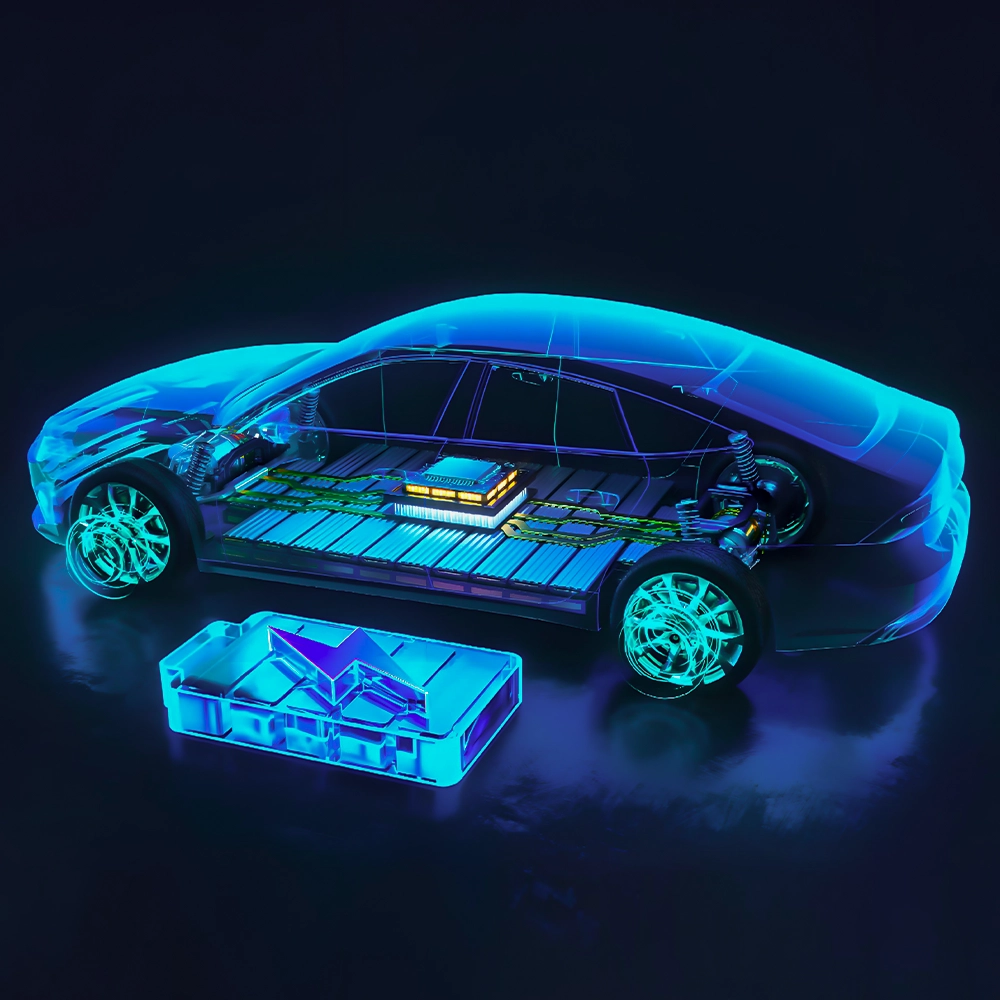
The electric vehicle battery industry is rapidly developing, focusing on technological innovation, market competition, and sustainability. Research hotspots include solid-state batteries, new types of electrolytes, BMS optimization, and recycling technologies. The environmental adaptability, safety, and economic viability of batteries are key research areas, and the industry is expected to undergo more innovation and transformation.
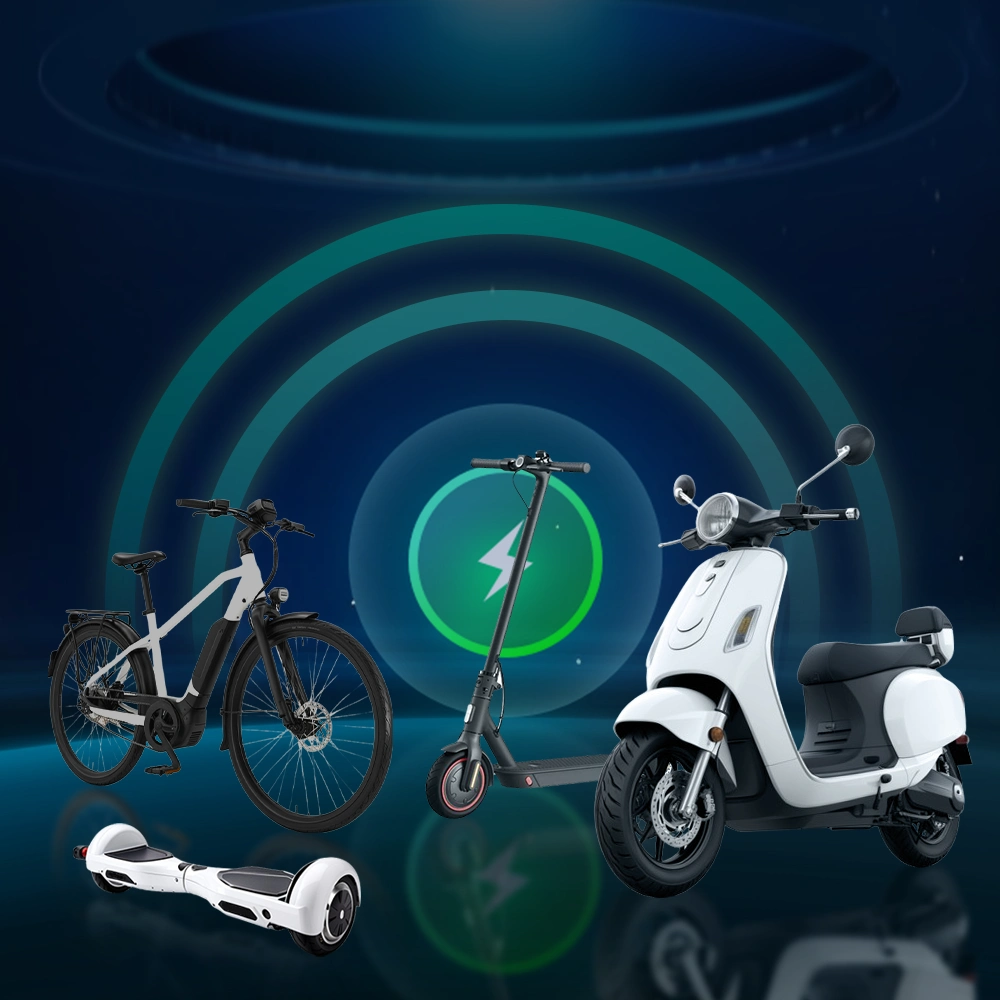
Electric Hoverboard, electric scooters, e bikes, and electric motorcycles are changing the way people travel, with the development of battery technology being at the core of this transformation. The main issues faced by electric bicycle batteries include battery cost, range, the popularity of charging infrastructure, thermal management of batteries, and safety. As battery technology continues to advance, it provides more reliable power support for these intelligent devices.

Lithium batteries are increasingly being used in RVs and electric golf carts, gradually replacing lead-acid batteries due to their high cost-effectiveness, long cycle life, and good safety. As technology continues to evolve, the energy density of the batteries keeps increasing, the weight is reduced, and safety has been significantly improved, providing a more reliable power supply for RVs.